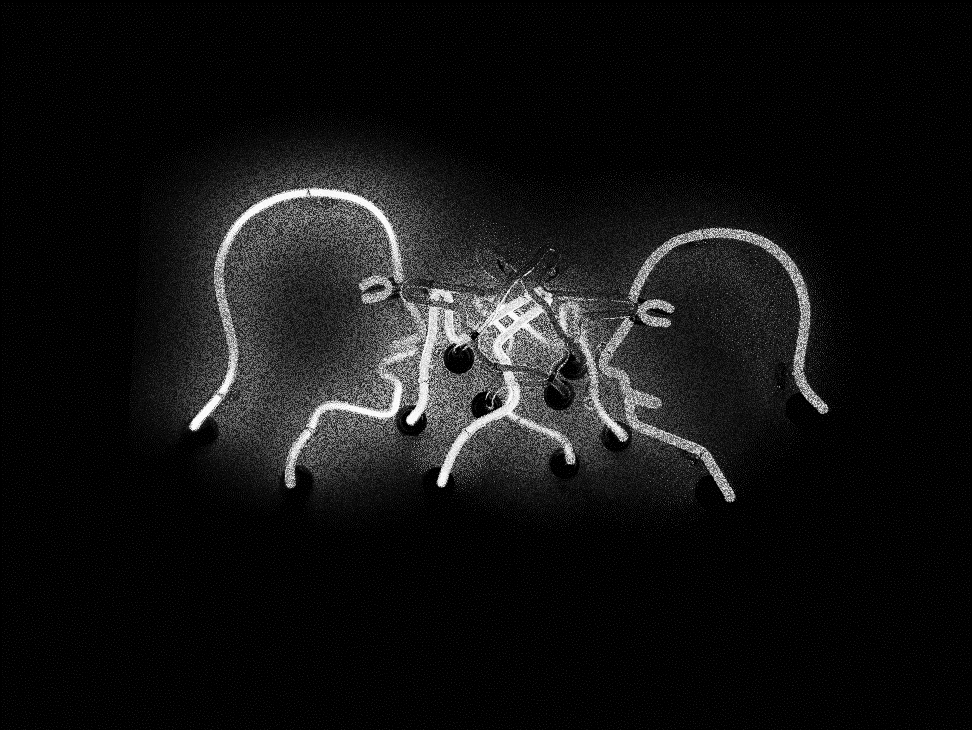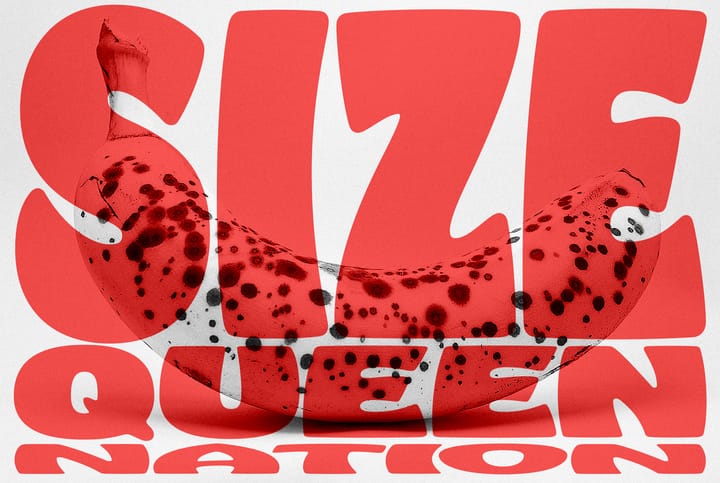A Report on Neoliberal Psychology, Part One
On the difficulties that arise in any attempt to trace social character to neoliberalism.

Psychology has a long tradition of trying to pinpoint the sickness that most expresses a period. Freud invented such fundamental concepts as the unconscious, transference, drive, and the Oedipus complex in order to understand hysteria, a common ailment of bourgeois men and women of the time. Their mysterious, often bizarre symptoms, believed to be rooted in the repression of their sexual drives, required a new conceptual framework.
After the catastrophes of the early twentieth century, some psychoanalysts turned to theories that traced a more explicit relationship between psychic structure and social form. They set out to understand the mechanisms of mass psychology, authoritarianism, and the taedium vitae of the alienated, lonely crowd. Political reaction and the techniques of the fascist agitator were understood as being part and parcel of a new mass culture that had been perfecting techniques of manipulation for decades. The culture industry for these theorists was more than mere entertainment, and its centrifugal force would continue to pull in greater portions of our life and attention. It was considered indispensable in the psycho-technical maintenance of social cohesion in an unraveling world, with some theorists going so far as to suggest that it might be capable of producing a new type of human being.
Later, Christopher Lasch would argue that post-War society had become a “culture of narcissism,” in which the progressive solutions which characterized the enlightenment tradition were replaced by structures of regression. The alienated, lifeless, administered society of late capitalism made people increasingly desperate to find outlets for unthinking identification with powerful institutions and modes of escape from reality.
The social developments that motivated these theories have not gone away. If anything, their results have accumulated, making psychological adaptation seem increasingly inescapable. But the question remains: Does our age contain its own particular psychological pathology? If so, how would we describe it, and how would it build upon the theories of the past?
Contemporary political developments have heightened the perception that reality is beyond our control or comprehension. Things that would have been unthinkable only ten years ago have become a natural part of our daily life, and the recent explosion of authoritarian elements into the mainstream have fostered a renewed interest in political psychology. Recent attempts at outlining a “neoliberal character” are motivated by the belief that neoliberalism is a psychological as well as a political-economic regime. In trying to comprehend the precise relationship between the two, we find ourselves back in the slippery dialectic of sociology and psychology, which consists both of moments of mutual determination and contradiction.
Does neoliberalism have any claim to introducing a truly new psychological condition? What shapes it, how do we observe its characteristic expressions, and what are some of the problems that confront attempts to describe a clear relationship between neoliberalism and psychic life?
A recent study by two psychologists, Thomas Curran and Andrew P. Hill, is an exemplary statement of this tendency, and its conclusions clearly illustrate the difficulties that arise in attempts to trace social character to neoliberalism. The study follows psychology’s recent fixation on the concept of anxiety, which is taken to be the main psychological analog to contemporary economic pressures. The researchers follow this connection and suggest that neoliberalism’s character type is primarily conditioned by inescapable angst.
To demonstrate this they trace a causal nexus between what they call “neoliberal values” and subjects who score high on metrics of “perfectionism”—typified by a constant critical self-evaluation and a manic struggle to meet the demands of pathologically severe personal standards. According to Curran and Hill, the pressures of rising competition for middle class jobs, paired with decades of attacks on social programs, has led to heightened levels of perfectionism in three forms—“self,” “other,” and “social.”
As they summarize:
When directed toward the self, individuals attach irrational importance to being perfect, hold unrealistic expectations of themselves, and are punitive in their self-evaluations (self-oriented perfectionism). When perceived to come from others, individuals believe their social context is excessively demanding, that others judge them harshly, and that they must display perfection to secure approval (socially prescribed perfectionism). When perfectionistic expectations are directed toward others, individuals impose unrealistic standards on those around them and evaluate others critically (other-oriented perfectionism).
At first glance, these conclusions seem self-evident. Social psychology often appears to be tasked with little more than placing the seal of science over common sense perceptions—getting enough sleep is important; people get nervous before they take tests; stress causes an increase in health risks. But the reference to neoliberalism has allowed a dimension normally tabooed in mainstream research—the pressures of capitalist society as a major psychological feature. The marketization of networks of social and emotional support, paired with political policies that aid capitalism’s natural tendency to accumulate wealth at the very top, have left many scrambling to overcome forces of downward mobility. Irrational, manic, and paranoid behaviors are unleashed in the scramble to maintain status, often at self-destructive costs.
But why “perfectionism”? Is that really the most significant source of contemporary anxiety? While there is certainly no shortage of reasons to be anxious, one might assume that a discussion of contemporary anxiety would turn upon those forces that make it increasingly difficult for certain class segments to obtain food, shelter, and healthcare, not to mention emotional support, access to a safe and supportive education system, safety from gun violence and the extreme weather effects of global warming. A social-psychological analysis along these lines would lead to an anti-capitalist politics based in eradicating the contradictions that perpetuate conditions of base survival in the most plentiful system in history. To account for why Curran and Hill do not reach this conclusion, but instead turn to the academic discourse on perfectionism, we need to locate another level of mediation.
Neoliberal perfectionism is especially on the rise in those born after 1989. Curran and Hill can thus be said to be countering with empirical science the wave of millennial pseudo-psychology. But for anyone who reads with a vague sense of national context perfectionist anxiety seems especially out of place in America, the land of “not broke, don’t fix it” realpolitikal inertia. Besides being rendered dysfunctional by polarization, our political system is mostly populated by a pragmatic people unperturbed by the allure of excellence for its own sake. Our achievements are (mostly) motivated by the desire for effective procedure, and our virtue is (mostly) a result of the fear of God. We have no qualms about accepting a quality of life just slightly above so-called “developing countries”—and in many working-class communities, with regard to certain social outcomes, it is worse.
Nevertheless, despite the untold catalog of our daily humiliations, the study implies that our standards for ourselves are nevertheless too high. With intractable social problems on the horizon, the conclusion that “perfectionism” is neoliberalism’s greatest psychological scourge is akin to being principally concerned, as we make our way to the hangman’s noose, that one of our shoes is untied.
These reflections allow us to recognize the first ideological layers of neoliberal characterology, which contains problematic assumptions on the side of both psychology and sociology.
On the one hand, the concept of neoliberalism shades into obfuscation when it prevents us from calling capitalism by its name. Considered as a distinct epoch of postmodern history, it restricts forces of domination present in all capitalist historical phases to a specific period. It shrouds the insight that the same logic of exploitation and inequality at work since the transition from feudalism also drive the most conspicuous social problems of the present.
This leads to the question of what, from the perspective of social psychology, is truly new about neoliberalism, and how do these factors shape our character?
Many of the studies into the new “neoliberal character” pair socio-historical slippages with class blindness, even as neoliberalism, if it is to have any meaning at all, is basically a codeword for the resurgence of a one-sided class war waged by a newly united capitalist class—a political response to the crisis of profitability which began in the 70’s and continues to the present. These transformations infused all layers of society, but when social psychology employs the concept of neoliberalism it has a tendency to make all of society synonymous with the middle class. The nuances of class position, experience and psychology are elided even as neoliberalism—both as a heightened force of capitalist exploitation as well as a set of psychological, cultural, and political response mechanisms—affects individuals differently according to their class position, age, race, and gender.
Some might counter that, while class distinctions are important for understanding social psychology, there is a grain of truth to the understanding of neoliberalism as a homogenizing force. That, for instance, gaps in income are disappearing not by moving the working class up but the middle class down, and that decades of political-economic restructuring have unleashed forces of inequality that tend flatten society into a sliver of haves and a mass of have-nots. While clearly defined class segments certainly remain relevant social-psychological indicators, the domination at the heart of capital accumulation leaves no one unscathed. A decades-long squeeze on profits has intensified competition for everyone. Various methods of intensification, rationalization, and a constant pressure to cheapen human inputs by investing more in fixed capital over wages have always been at the core of the accumulation process. This has led to the production of a surplus population defined by the redundancy of their labor potential and the reduction of relatively well-off workers to interchangeable, alienated objects within a process. Neoliberalism simply paired these forces with the political assault on non-market support systems. These are not products of a new, more nefarious form of “neoliberal” capitalism, but internal both to capitalism’s macrosocial laws of motion as well as its microsocial constraints on individual agency. They affect everyone, across class segments.
The result is a palpable, ubiquitous sense of precariousness amidst plenty, with different class segments responding accordingly. There is an unmistakable pressure on middle class segments to make increasingly masochistic sacrifices to maintain productivity, with a number of corresponding psychological results—perfectionism being just one of many.
But the heightened willingness to sacrifice, to identify with the aggressor (in the language of psychoanalysis) is obviously preferable to the desperation and despair of the the working classes, which exhibits its own set of different yet equally alarming social-psychological phenomena.
■
Part Two of A Report on Neoliberal Psychology is available here.
Elia Tommaso is a painter who lives mostly in the past.



